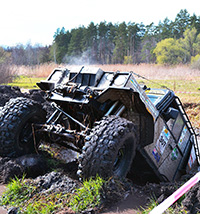When the road ahead gets too rough, we need to e
This week, NCVO published its annual state of the nation report, the road ahead, and unsurprisingly, it’s not a pretty read. Anyone even tangentially involved with the sector already knows these are extremely challenging times.
The report identifies growing public need, exacerbated by the legacy of the pandemic, the rising cost of living, imminent benefit cuts and ongoing impact of climate change.
And it talks about the increasing fragility of charities and communities amid the decline of state funding, the fall in numbers of both donors and volunteers, the rising cost of operating, and the pressure all this is putting on leaders and their teams.
It mercifully avoids the “perfect storm” cliché, and partly in tribute to that restraint, I’ll eschew the equally overused “unprecedented”. But mainly I’ll avoid it because none of this is unprecedented.
These issues aren’t new; we’ve been heading in this direction since the start of austerity. Perhaps it’s because many of us expected something different from the new government, but the simple truth is, these are the same challenges as before, just bigger and more of them.
Indeed, you could be forgiven for thinking the “road ahead” looks very much like the one behind, albeit even tougher. But I think that would be a mistake.
Many of us will already be busy trying to adapt to meet those growing challenges, and the NCVO report itself makes various suggestions: sharpen up your strategy, play to your strengths, collaborate with others, diversify income, demonstrate impact, and do more with digital.
All sensible suggestions, most of which I’ve written or spoken about in the past, some at length.
But in times of continual change, we must remember the metaphor of the frog and the saucepan. It’s all too easy to underestimate the scale of response required, not least because responding takes time.
Which means, by the time our organisations have adapted to meet the acute challenges of today, today will already have become tomorrow.
If we know the situation is one that’s likely to only get worse, perhaps instead of racing to catch up, we need to start thinking about how we get out ahead of those trends.
To start thinking, not about how we deal with what’s in front of us now, but about what kind of organisation we might need to become if we’re to meet the even greater challenges we will face after another two or three years of this same road.
For many people I know that will feel like an impossible task. For some, it’s taking all they have just to keep the wheels turning.
But all of our organisations have changed before, many in the very recent past, and some almost beyond recognition.
The pandemic may already feel like a lifetime ago, but most organisations have changed how they work, often quite radically in the five years since 2020.
And what if the “road ahead” that NCVO describes continues to degrade, much as it has been doing for the last two decades?
What if traditional sources of income and volunteers continue to diminish, traditional models of services and provision become unaffordable or, at best, unable to meet the expanding need? And what if our traditional ways of making a charity’s finances stack up, increasingly fold under the pressure?
What kind of organisation would yours need to become in order to operate sustainably, in that environment, in two, three, five years’ time?
Now is probably the time to start opening up those conversations if you haven’t already, and to start thinking seriously about the alternatives before you, too, run out of road.
Take a moment, right now, and think about it: what would your organisation need to become to succeed in that environment?
Feel free to drop me a note with your thoughts, or to share the question as a scenario for your team and let me know where the conversation takes you.
Because there comes a point when the road ahead gets so rough you have to start exploring some of the roads less travelled if you want to keep going.
And I get the sense we’re at that point. Don’t you?
